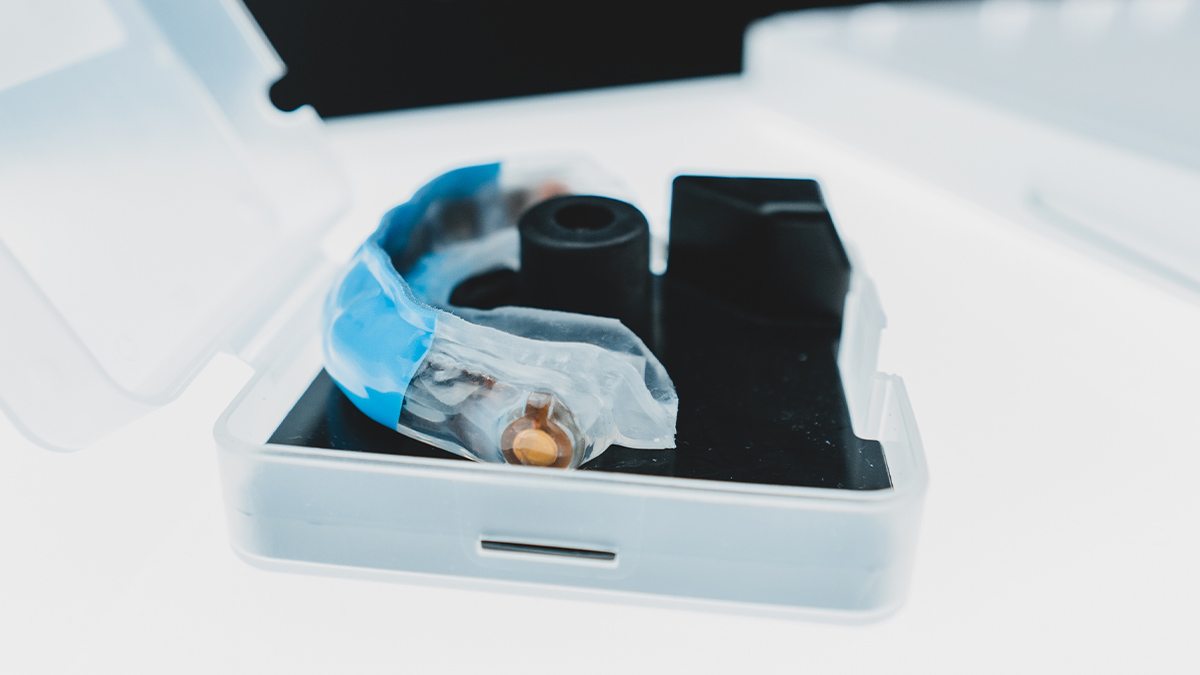Carolina Football uses high-tech mouthguards to measure on-field head impacts
The use of the NFL’s mouthguard sensor at the collegiate level will broaden, inform injury reduction efforts for elite athletes.

The University of North Carolina at Chapel Hill is teaming up with the National Football League to measure on-field head impacts using high-tech mouthguards. The NFL announced the pilot program today that includes four research universities.
The Tar Heels have worn the smart mouthguards throughout the 2021 football season, and they are currently used by 10 NFL clubs, and players at the University of Alabama, University of Wisconsin and the University of Washington.
For every tackle and hit, a series of tiny sensors fitted into the customized mouthguard records kinematic data such as impact speed, direction, force, location and severity. The data collected will inform injury reduction efforts at the professional and collegiate levels.
“The University of North Carolina has always been at the forefront of research in many areas, and particularly, player safety research,” said Mack Brown, head football coach at UNC-Chapel Hill.
The program is overseen by the NFL’s Jennifer Langton, senior vice president of health and safety innovation. At UNC-Chapel Hill, Jason Mihalik, co-director of the Matthew Gfeller Center in the College of Arts & Sciences and national leader in sports-related concussions research, will take the lead.
Each university will receive an analysis specific to their team to help inform their own efforts to advance player health and safety.
“I’m glad our sports medicine and human performance staffs are partnering with Dr. Jason Mihalik and his research team in the Matthew Gfeller Center to continue their national leadership in this area,” Brown said. “Player safety is important to the health of our game, so anything we can do to assist in gathering research that could potentially make the game safer, we’re happy to do. We’re proud to join these other prestigious Universities and hope this program will continue to make a difference with injury prevention.”
Collected data are anonymized and analyzed by the NFL-NFLPA’s independent engineering experts at Biocore.
The information will inform the NFL’s approach to injury reduction and safety which it has prioritized with rules changes and the continued advancement of better-performing equipment, like position-specific helmets.
“Sophisticated and specific data collection is central to our work to find better ways to research, diagnose, understand and better prevent injuries,” said NFL Chief Medical Officer Dr. Allen Sills. “We are excited to establish this partnership with not only nationally recognized collegiate football programs who have a direct pipeline to the NFL, but also with esteemed research universities to expand the universe of inputs from which we can analyze, draw conclusions and develop recommendations for how to make the game safer.”
The mouthguard sensor program launched in 2019 as part of the NFL’s $60 million commitment under the Engineering Roadmap to promote health and safety initiatives. The partnership with these four universities is an expansion of the NFL’s broader approach to driving innovation in the sport, and is the first phase of a program the league expects to expand to additional universities in the coming months and years.
The NFL is committed to upholding the highest ethical standards for scientific research studies such as this one. Each of the participating university’s Independent Review Boards has reviewed and approved the terms of this study.




